Iberian Peninsula
Modern-day Countries in this region
Bronze Age
During this period, no organized political entities existed in the region. The only documented events involve changes to the coastline.
Coastline Changes
Important changes to the coastlines throughout History.
Iron Age
This period saw the establishment of Pheonician and Greek Colonies.
Phoenician Polities
All the Phoenician polities founded within Phoenicia.
Greek Poleis
Independent Greek poleis in the Mediterranean Basin between the 8th and 4th century BC.
Antiquity
In Antiquity, the Iberian Peninsula became a contested region between major Mediterranean powers. The Carthaginians expanded their influence during the 3rd century BCE, but the Roman Republic emerged victorious in the Punic Wars (264-146 BCE), incorporating the peninsula into the Roman Empire. Hispania, as the Romans called it, was divided into provinces like Hispania Tarraconensis, Baetica, and Lusitania.
By the late 4th century AD, the Western Roman Empire weakened, leading to the arrival of Germanic tribes like the Visigoths and Suebi, who established their own kingdoms, marking the transition to the Early Middle Ages.
Rome
Ancient history
Carthagean Expansion
Roman Republic Classic Wars
Roman Republic Internal Wars
Gothic Wars
Were a series of conflicts between the Roman Empire and the Goths.
Early Barbarian Invasions
Crisis of the Third Century
Polities emerged during the crisis of the Roman Empire in the 3rd century (such as the Palmyrene Kingdom and the Gallic Empire)
Principate Times of Rome
Civil wars of the Tetrarchy
Factions during the Civil Wars of the Tetrarchy (306-324 AD).
Tetrarchy
Civil war of the Constantinian Dynasty
Polities ruled by the successors of Constantine The Great after his death (337 AD).
Frankish Polities
Medieval polities emerged from the many divisions of the Frankish Kingdom (and later empire).
Constantinian dynasty
Late Roman Empire
Eastern Roman Empire
western roman empire
Definitive Division of the Roman Empire
After the death of Theodosius I, the last Emperor of the whole Roman Empire, the empire was divided between his two sons in a Western and Eastern part.
Barbarian kingdoms
Polities created by Germanic people (and a few other like the Alans) during the early Middle Ages.
Roman-Maurian Kingdoms
Christian Berber kingdoms in North Africa after the collapse of the Roman state.
Western Roman Empire
Barbarian Invasions
Early Middle Ages
The Early Middle Ages were dominated by the Visigothic Kingdom, which unified much of the Iberian Peninsula under its rule by the 6th century.
However, in the period 711-720 the Umayyads conquered the Iberian Peninsula. Christian Reconquista started from the remeaining Kingdoms in the north, like the the Asturian Kingdom as well as the territories controlled the by the Franks.
In Catalonia, an area on the border between Muslim and Christian control, a patchwork of petty Kingdoms - the Catalan Counties - emerged.
Frankish Partitions
The Frankish Kingdom was partitioned and reuinited several times as the Frankish rulers used to divide their territories equally among their heirs. This lead also to a number of wars and revolts.
Visigothic Kingdom de facto controlled by the Ostrogoths
Was a period of the Visigothic Kingdom when it was indirectly controlled by the Kingdom of the Ostrogoths.
Early Eastern Roman Empire
Early Middle Ages
Visigothic conquest of Spania
Were the Visigothic campaigns in southern Spain that slowly led to the expulsion of the Byzantines from the region.
Early Muslim conquests
Were the military campaigns by the first three Islamic Caliphates (the Caliphate of Muhammad, the Rashidun Caliphate and the Umayyad Caliphate) that led to the Islamic conquest of most of the Middle East as well as the Iberian Peninsula.
arab caliphate
Umayyad Invasion of Europe
Were the military campaigns of the Umayyad Caliphate in modern-day Spain, Portugal and France.
Reconquista
Were a series military campaigns from the 8th century until 1492 by the Christian kingdoms of the Iberian Peninsula to reconquer the region from the Islamic rulers that had conquered it during the Umayyad conquest of Hispania.
Abbasid Revolution
Was the overthrow of the Umayyad Caliphate (661-750 CE), the second of the four major Caliphates in Islamic history, by the third, the Abbasid Caliphate (750-1517 CE).
Early Middle Ages
The Franks
Catalan counties
Medieval Catalan Counties between 778 and the mid-11th century.
Hungarian invasions
High Middle Ages
In the High Middle Ages the Reconquista continued. The Caliphate of Córdoba - successor of the Umayyads - ragmented into many petty Kingdoms (the Taifas). The XII century saw the establishment of a new Muslim Empire, the Almohad Caliphate.
This period saw the establishment of some the key Christian Kingdoms of the Iberian Peninsula like the Kingdom of Castile, the Kingdom of Navarre, and the Kingdom of Portugal.
Maritime Republics
Thalassocratic city-states of the Mediterranean Basin during the Middle Ages. Founded around the 9th century, in some cases they lasted until the 18th and 19th centuries (Venice, Genoa, Ragusa).
Spanish Taifas
Small principalities founded by the Arabs in nowaday Spain and Portugal (711-1492 AD).
Fragmentation of the Caliphate of Córdoba
The Caliphate disintegrated in the early 11th century during the Fitna of al-Andalus, a civil war between the descendants of caliph Hisham II and the successors of his hajib (court official), Al-Mansur, leading to the establishment of a multitude of independent Muslim kingdoms (taifas).
Berber Kingdoms
Kingdoms created by Berber people in the Medieval and Modern era.
High Middle Ages
Conquests of the Taifa of Seville
Were the conquests of the Taifa of Seville, one of the most powerful Islamic kingdoms in the Medieval Iberian Peninsula.
High Middle Ages
Crusades
The Crusades were a series of religious wars initiated, supported, and sometimes directed by the Latin Church in the Medieval period. The best known of these military expeditions are those to the Holy Land in the period between 1095 and 1291.
Revolt of Galicia (1109)
Was the revolt of Galicia led by Theresa, countess of Portugal, against her sister, Queen Urraca of León and Castile.
Establishment and expansion of the Almohad Caliphate
Were the conquests of Abd al-Mu'min, founder of the Moroccan Almohad Caliphate.
Late Middle Ages
The Late Middle Ages saw the culmination of the Reconquista and the unification of Spain. The Christian kingdoms of Castile and Aragon strengthened their political and military power, while the Muslim Kingdom of Granada remained the last stronghold of Al-Andalus. In 1492, the Catholic Monarchs, Ferdinand II of Aragon and Isabella I of Castile, captured Granada, completing the Reconquista and unifying much of the peninsula under their rule.
The voyage of Christopher Columbus in the Americas resulted in the widespread European exploration and colonization of the new continent.
This period also saw the Spanish expansion into the Canary Island and North Africa.
Meanwhile, Portugal expanded its maritime empire along Africa’s coast and into Asia.
Hundred Years' War
Were a series of conflicts between the Kingdom of England and the Kingdom of France that spanned more than a century (with interruptions) from 1337 to 1453. The immediate causes of the conflicts were the English possessions in France which were at the same time vassals of the French Kingdom, as well as disputed claims to the French throne between the English House of Plantagenet and the French royal House of Valois. At the end of the war Englans lost all its possessions in France with the exception of the city of Calais.
Late Middle Ages
Conquest of the Canary Islands
Was a Castilian military campaign that resulted in the conquest of teh Canary Islands.
European Enclaves in North Africa before 1830
All the Europeans enclaves in North Africa before 1830.
European wars of religion
Were a series of wars in Europe (and the overseas possessions of European countries) the 16th, 17th and early 18th that started after the Protestant Reformation. Although the immediate causes of the wars were religious, the motives were complex and also included territorial ambitions.
Irmandiño revolts
The Irmandiño revolts (or Irmandiño Wars) were two revolts that took place in 15th-century Kingdom of Galicia against attempts by the regional nobility to maintain their rights over the peasantry and the bourgeoisie.
Navarrese Civil War
Was a civil war in the Kingdom of Navarre caused by the succession dispute started after the death of Queen Blanche I. The war pitted the supporters of Juan II of Aragon (the husband of Queen Blanche against Charles (the son of Blanche and Juan). The ware resulted in the victory of Juan II who united Aragon and Navarre in personal union.
Anatolian Beyliks
Turkish principalities in Anatolia that resulted from the fragmentation of the Seljuk Empire in the second half of the 13th century.
Late Middle Ages
Italian Wars
Were a series of conflicts covering the period between 1494 to 1559, fought mostly in the Italian peninsula, but later expanding into Flanders, the Rhineland and the Mediterranean Sea. The primary belligerents were the Valois kings of France, and their Habsburg opponents in the Holy Roman Empire and Spain.
Rebellion of the Alpujarras
Were a series of uprisings by the Muslim population of the former Emirate of Grenada in southern Spain against their Catholic rulers.
Early modern period
The Early Modern Period was the golden age of Iberian empires. Spain and Portugal became global superpowers, establishing vast colonial empires in the Americas, Africa, and Asia. Spain’s wealth, fueled by silver and gold from the Americas, supported cultural achievements during the Spanish Golden Age, with luminaries like Cervantes and Velázquez.
However, both nations faced challenges, including economic strains, religious conflicts from the Inquisition, and rivalry with other European powers. The Iberian Union (1580-1640) briefly united Portugal and Spain under a single monarchy, though Portugal regained independence in 1640.
This period was marked by several important wars and political changes for the Spanish Monarchy. From 1519 to 1556 the Habsburg Charles V reigned over both Spain and the Holy Roman Empire. The death in 1700 of Charles II, last of the Spanish Habsburgs, triggered the War of the Spanish succession. The Nueva Planta decrees signed between 1707 and 1716 by Philip V, the first Bourbon King of Spain, united the Kingdoms of Aragon and Castile into the Kingdom of Spain.
This period also saw several wars that were for the first time world wars, including the Seven Years' War, the War of the Polish Succession, and the War of the Austrian Succession.
Early modern period
Conquests of Mohammed ash-Sheikh
Expansion during the rule of Mohammed ash-Sheikh of the Saadi dynasty.
Conquests of Murad III
Expansion during the rule of Murad III in the Ottoman Empire.
Portuguese Restoration War
Was a revolution organized by the Portuguese nobility and bourgeoisie sixty years after the crowning of Philip I (Philip II of Spain), the first "dual monarch", that ended the Iberian Union.
Anglo-Dutch Wars
Were a series of conflicts mainly fought between the Dutch Republic and England (later Great Britain) from mid-17th to late 18th century.
Early modern period
War of the Spanish Succession
The death of childless Charles II of Spain in November 1700 led to a struggle for control of the Spanish Empire between his heirs, Philip of Anjou and Charles of Austria, and their respective supporters. It was a global war, with fighting taking place in Europe, Asia, and America. At the end of the war, Philip II, who was the successor chosen by Charles II as a descendant of Charles' paternal half-sister Maria Theresa, became King of Spain and of its overseas empire. The Spanish possessions in Europe were partitioned between various European Monarchies.
Seven Years' War
Was a global conflict that involved most of the European great powers, and was fought primarily in Europe, the Americas, and Asia-Pacific. At the end of the war the main winner was Great Britain, that obtained territories in North America, the Caribbean and India, becoming the most powerful maritime and colonial of the European powers.
American Revolutionary War
Was the war of independence of the United States of America (at the time the Thirteen Colonies) against Great Britain.
French Revolutionary and Napoleonic Period (1789-1815)
The French Revolutionary and Napoleonic period brought turmoil to the Iberian Peninsula. Napoleon’s invasion of Spain in 1808 triggered the Peninsular War, a conflict marked by guerrilla warfare and widespread resistance. Portugal, aided by British forces under the Duke of Wellington, successfully resisted French occupation.
The war significantly weakened Spanish authority, contributing to the collapse of its colonial empire as independence movements erupted across Latin America. The Congress of Vienna (1815) restored peace, but the peninsula emerged deeply scarred and politically unstable.
French Revolutionary and Napoleonic Wars
Were a series of conflicts between France and several European monarchies between 1792 and 1815. They encompass first the French Revolutionary Wars against the newly declared French Republic and from 1803 onwards the Napoleonic Wars against First Consul and later Emperor Napoleon Bonaparte. They include the Coalition Wars as a subset: seven wars waged by various military alliances of great European powers, known as Coalitions, against Revolutionary France - later the First French Empire - and its allies.
French Revolutionary and Napoleonic Wars
Napoleonic Polities
Napoleonic creations. It includes also principalities created in Germany but not German polities that already existed and just changed name or form.
19th Century
The 19th century was a period of political turbulence and transformation. Spain endured a series of civil wars, known as the Carlist Wars, over succession disputes and ideological divisions. Portugal experienced its own internal conflicts, including liberal revolutions that restructured its monarchy.
Meanwhile, Spain lost most of its remaining colonies, including Cuba and the Philippines, following the Spanish-American War in 1898.
XIX Century
Carlist Wars
Were a series of civil wars that took place in Spain during the 19th century. The Carlists advocated for Infante Carlos of Spain, Count of Molina, a pretender to the throne and brother of the deceased Ferdinand VII as the daughter of Ferdinand had become Queen instead.
XIX Century
From 1900 to the End of World War II
The Spanish Civil War (1936-1939) resulted in the rise of Francisco Franco’s authoritarian regime. Portugal underwent its own political shifts, with the monarchy overthrown in 1910 and the Estado Novo dictatorship established under António de Oliveira Salazar in 1933.
During World War II, both Spain and Portugal remained officially neutral.
1900-1945
1900-1945
World War II
Was a global conflict that lasted from 1939 to 1945 (it started sooner in certain regions) between the Axis Powers (mainly Germany, Japan and Italy) and the Allies (mainly the Soviet Union, the U.S.A., the U.K., China and France). It was the war with more fatalities in history. The war in Asia began when Japan invaded China on July 7, 1937. The war in Europe began when Germany invaded Poland on September 1, 1939. The war ended with the complete defeat of the Axis powers, which were occupied by the Allies.
Spanish Civil War
Was a civil war in Spain fought between the Republicans (that wanted to keep the current Republican system) and the Nationalists (that wanted to end the Republican system and replace it with a Monarchy or a Fascist regime). The war resulted in the victory of the Conservatives led by General Francisco Franco, who established a totalitarian regime in Spain.
Cold War Period
During the Cold War, Spain and Portugal remained under authoritarian rule for much of the period. In Portugal, the Carnation Revolution of 1974 ended Salazar’s dictatorship and led to democratic reforms. Spain transitioned to democracy following Franco’s death in 1975, with King Juan Carlos I playing a pivotal role in the peaceful shift to a parliamentary monarchy.
Both nations joined the European Economic Community (later the European Union) in 1986, marking a new era of economic growth and European integration.
Cold War
Cold War
Post-Cold War Period (1990-2010)
The post-Cold War era was marked by rapid modernization and integration into the European Union. Spain and Portugal became leaders in renewable energy, tourism, and cultural industries. However, economic challenges, particularly the 2008 global financial crisis, strained both nations, leading to high unemployment and austerity measures.





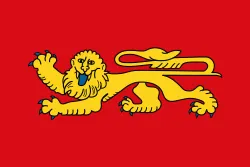
.png.webp)
.svg.png.webp)
.png.webp)
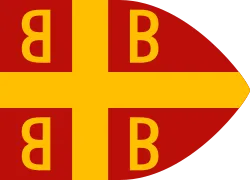


_(1258_1659).svg.png.webp)
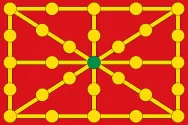
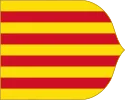
.svg.png.webp)
.svg.png.webp)


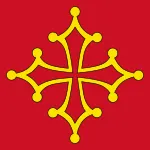
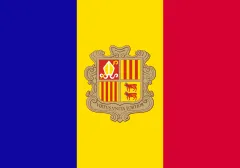
.png.webp)
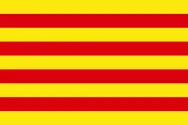
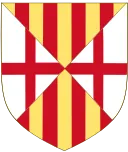

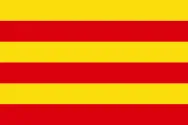
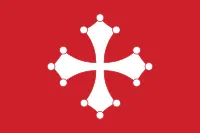

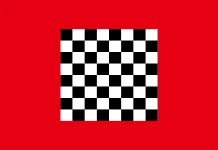
.svg.png.webp)
-Variant.svg.png.webp)
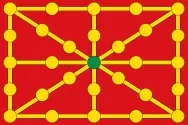
.svg.png.webp)
.svg.png.webp)
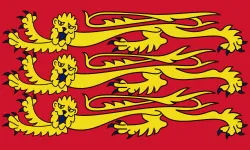


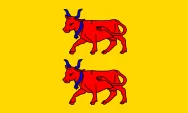
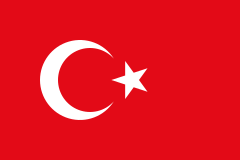

.svg.png.webp)
.svg.png.webp)
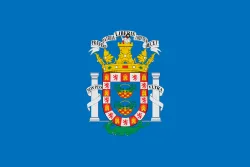
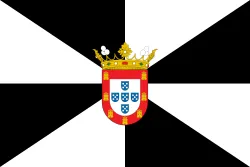
.svg.png.webp)
.svg (1).png.webp)
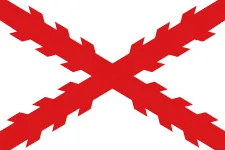
.svg.png.webp)
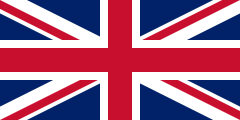
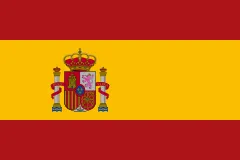


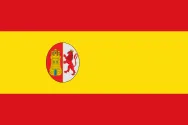

.svg.png.webp)
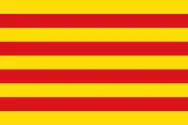
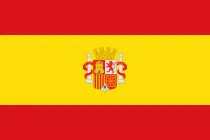
.svg.png.webp)


























